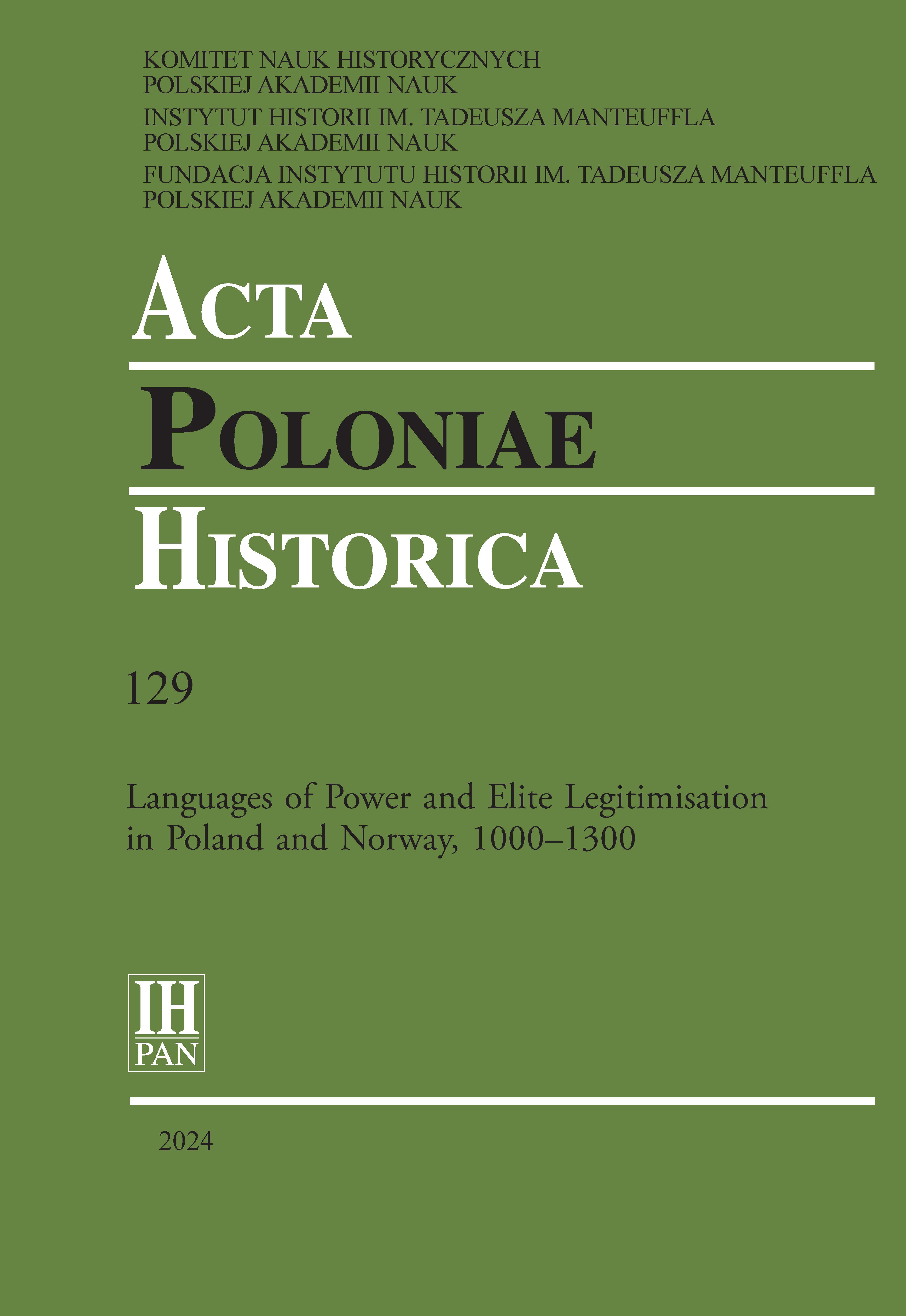National Indifference Concept and Contemporary WWII Military Reenactment in Czech Lands: A Comparative View of the Groups Reenacting Hultschin and Estonian SS Conscripts
DOI:
https://doi.org/10.12775/APH.2024.129.08Keywords
military reenactment, national indifference, Czech lands, Hlučín region, EstoniaAbstract
For the first time in the Czech Republic, a research project on contemporary military re-enactment has been carried out based on oral history. The research team managed to record memory narratives of, among others, three military reenactment associations, two of which still engage in a controversial reenactment of Wehrmacht Heer units (coming from the Hultschin/Hlučín/Hulczyn region). At the same time, the third reenacts Estonian SS units. In the spirit of post-positivist oral history, the collected narratives have been analysed primarily to reveal the cultural content, forms, and processes that shape the historical subjectivity of the narrators, that is, the way they understand themselves in history. One key cultural form the narrators use is the so-called ‘national indifference’. The reenactors refuse to identify themselves ethno-culturally (and ideologically) with German or Czech/Czechoslovak warring sides. These cultural forms are further augmented with the concept of an ‘ordinary soldier’, which is well-known in reenactment studies. As a result, reenactors self-interpret themselves as subjects who reenact Axis German armies, but consciously, within liminal contexts, whilst rejecting Nazi ideology, which makes them significantly more acceptable in Czech military reenactment milieus. In this respect, the study provides a comparative view of the Hultschin and Czech Estonian SS reenactors within the context of reenactor associations.
References
Abrams Lynn, Oral History Theory (2nd edition) (London, 2016).
Agnew Vanessa, Lamb Jonathan, and Tomann Juliane (eds), The Routledge Handbook of Reenactment Studies. Key Terms in the Field (London–New York, 2020).
Agnew Vanessa, Stach Sabine, and Tomann Juliane (eds), Reenactment Case Studies: Global Perspectives on Experiential History (London–New York, 2023).
Baraniewska-Olszewska Kamila, World War II Historical Reenactment in Poland. The Practice of Authenticity (London–New York, 2022).
Daugbjerg Mads, ‘Patchworking the Past: Materiality, Touch and the Assembling of “Experience” in American Civil War Re-enactment’, International Journal of Heritage Studies, xx, 7–8 (2014), 724–41.
Lozoviuk Petr, ‘K problematice “etnické indiference” (příklady z českého jazykového prostředí)’, Český lid, lxxxiv, 3 (1997), 201–12.
Maršálek Zdenko and Neminář Jiří (eds), Ve dvou uniformách: Nuceně mobilizovaní do Wehrmachtu a jejich účast v odboji (okolnosti, souvislosti, marginalizace) (Hlučín, 2020).
Mertelfmann Olaf and Rahi-Tamm Aigi, ‘Soviet mass violence in Estonia revisited’, Journal of Genocide Research, xi, 2–3 (2009), 307–22.
Mrňka Jaromír, Limity lidskosti. Politika a sociální praxe kolektivního násilí v českých zemích 1944–1946 (Praha, 2019).
Olechnicki Krzysztof and Szlendak Tomasz, ‘Historical Re-enactment in Poland. Between Faithfulness to History and the Imperative of Spectacularity’, Polish Sociological Review, ccix, 1 (2020), 3–22.
Portelli Alessandro, The Battle of Valle Giulia. Oral History and the Art of Dialogue (Madison, 1997).
Portelli Alessandro, The Order Has Been Carried Out. History, Memory, and Meaning of a Nazi Massacre in Rome (New York–Houndmills, 2003).
Thompson Jenny, War Games: Inside the World of Twentieth-century War Reenactors (Washington, 2004).
Thomson Alistair, ANZAC Memories. Living with the Legend (new edition) (Clayton, 2013).
Zahra Tara, ‘Imagined Noncommunities: National Indifference as a Category of Analysis’, Slavic Review, lxix, 1 (2010), 93–119.
Zahra Tara, Kidnapped Souls: National Indifference and the Battle for Children in the Bohemian Lands, 1900–1948 (Ithaca, NY, 2011).
Znebejánek František, ‘Proměny hodnotových orientací a sebehodnocení obyvatel Hlučínska a České republiky’, Historická sociologie, 2 (2016), 75–99.
Downloads
Published
How to Cite
Issue
Section
License
Title, logo and layout of journal are reserved trademarks of APH.Stats
Number of views and downloads: 820
Number of citations: 1



